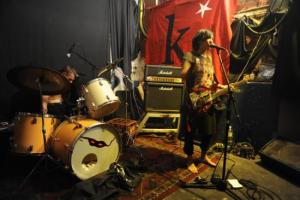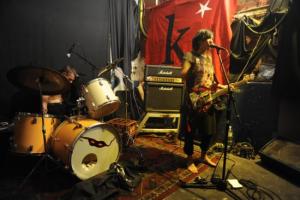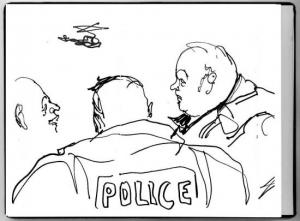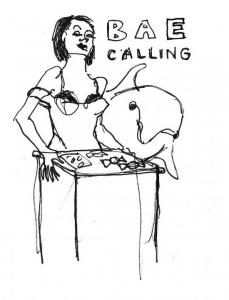One of the most amazing things that struck me was that 95% of all the shows were organized by people who were just hitting 40 or were beyond it. We were amazed to see such necessary collaboration between ages and sexes. I was sure we were going to be the only oldies (+37) at each show but in fact it is mainly “the oldies” keeping many underground venues and squats going.
I was totally inspired by that.
In one city in France I met three women who all played music or sang in at…





